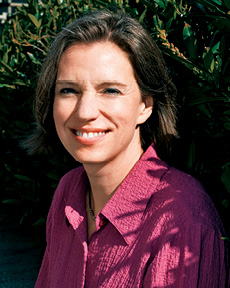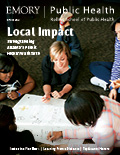United Way partnership targets families to reduce secondhand smoke exposure
|
“This project focuses on creating rules about not smoking in the home rather than asking smokers to quit,” says EPRC director Michelle Kegler. |
The Emory Prevention Research Center (EPRC) is taking another step to reduce secondhand smoke exposure.
Funded by a $6.75 million grant from the National Cancer Institute, EPRC will test an intervention to help callers to United Way 2-1-1 make their homes smoke-free. United Way 2-1-1 is a 24/7 helpline and website that connects people in need with community resources such as food and utility assistance, housing, and health care.
“Most smokers are aware of the negative effects of smoking for themselves and are responsive to messages about protecting their loved ones,” says Michelle Kegler, EPRC director and associate professor of behavioral sciences and health education. “This project focuses on creating rules about not smoking in the home rather than asking smokers to quit.”
The new research builds on EPRC’s pilot work with Emory’s Winship Cancer Institute and the CDC-funded Cancer Prevention and Control Research Network (CPCRN) to test the intervention at local Georgia health departments. Kegler’s team now is working with CPCRN partners at the University of North Carolina, the University of Texas Health Sciences Center, and Washington University. The United Way 2-1-1 sites in Atlanta, North Carolina, Houston, and Missouri will participate as well.
“One key component to a thriving community is living a healthy lifestyle,” says Milton Little, president of United Way of Metropolitan Atlanta. “We are proud to be part of a program that could improve the quality of life for so many families and households.”



